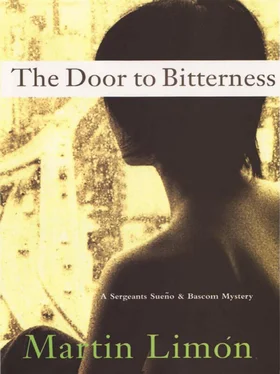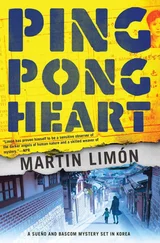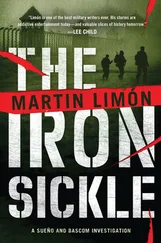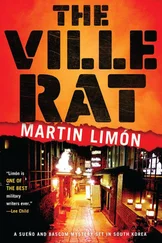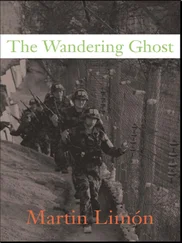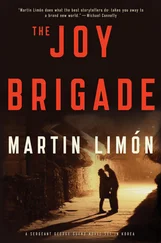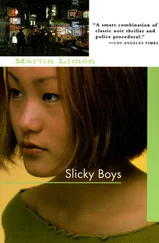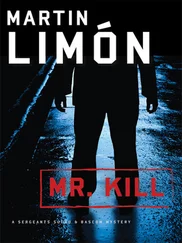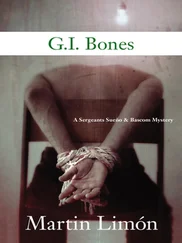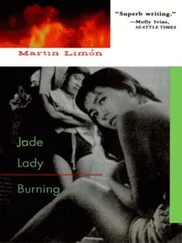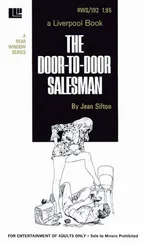Martin Limon - The Door to Bitterness
Здесь есть возможность читать онлайн «Martin Limon - The Door to Bitterness» весь текст электронной книги совершенно бесплатно (целиком полную версию без сокращений). В некоторых случаях можно слушать аудио, скачать через торрент в формате fb2 и присутствует краткое содержание. Жанр: Полицейский детектив, на английском языке. Описание произведения, (предисловие) а так же отзывы посетителей доступны на портале библиотеки ЛибКат.
- Название:The Door to Bitterness
- Автор:
- Жанр:
- Год:неизвестен
- ISBN:нет данных
- Рейтинг книги:4 / 5. Голосов: 1
-
Избранное:Добавить в избранное
- Отзывы:
-
Ваша оценка:
- 80
- 1
- 2
- 3
- 4
- 5
The Door to Bitterness: краткое содержание, описание и аннотация
Предлагаем к чтению аннотацию, описание, краткое содержание или предисловие (зависит от того, что написал сам автор книги «The Door to Bitterness»). Если вы не нашли необходимую информацию о книге — напишите в комментариях, мы постараемся отыскать её.
The Door to Bitterness — читать онлайн бесплатно полную книгу (весь текст) целиком
Ниже представлен текст книги, разбитый по страницам. Система сохранения места последней прочитанной страницы, позволяет с удобством читать онлайн бесплатно книгу «The Door to Bitterness», без необходимости каждый раз заново искать на чём Вы остановились. Поставьте закладку, и сможете в любой момент перейти на страницу, на которой закончили чтение.
Интервал:
Закладка:
It was late afternoon. The sun would go down soon and the lights of Itaewon would blink to life as they had for so many years since the end of the Korean War. But tonight, they’d blink on without Ernie Bascom.
Suk-ja and I stood out on the street, waiting. A motor bike putt-putted up the street. A red helmet flashed by. I watched as Jimmy the photographer parked his bike in front of the King Club, his boxy camera with flash slung over his shoulder, ready for another night’s work.
Then I knew.
I grabbed Suk-ja’s hand. “Come on.”
I dragged Suk-ja across and stopped Jimmy before he could enter the swinging doors of the King Club. I pulled out the photo he had given me and asked him some questions. Jimmy’s memory was excellent, and he pointed to the big wooden arch under which Miss Yun and her two children had posed, all three smiling bravely. Together, we recited the name of the Buddhist temple where he’d flashed the photo: Hei-un Sa. The Temple of Sea and Cloud. Jimmy gave us directions.
Suk-ja and I thanked him and waved down a cab.
Before we left Itaewon, Suk-ja insisted on stopping at a pay phone to place a call. To her brother, she said. While I waited in the cab, I watched her chatting away, unable to hear what she was saying. It didn’t matter. I figured I already knew who she was calling and what she’d be saying. Still, I worked on finding a way to believe that I was wrong about her and that she really was talking to her brother.
With the passenger door ajar so the inside light would stay on, Suk-ja and the cab driver studied a map of Kyongi Province.
“Over there,” she said, pointing.
We had already traveled many miles east of the outskirts of Seoul, and I knew from driving these areas during daylight that we weren’t far from the Han River Estuary. The map indicated we were close to the temple, and the driver agreed with her. I closed the door as he restarted the engine. He drove down the bumpy, unpaved country road.
Litter lined the sides, and muddy tire tracks were everywhere. It had been a busy day out here, but with the crowds of Chusok worshipers back in the city, the area was desolate and barren. Wind swirled inland from the cold sea.
Why did I believe that the smiling woman and her brother would come out here for their Chusok ceremony? Because they’d been happy here. They’d visited with their mother when she was alive, many times, according to Jimmy. It was the logical place to finally bury her ashes. But as Jimmy had warned me, land-even a small burial mound-could be expensive. Hundreds of dollars. Even thousands, if the mound had an unobstructed view of the sea.
The terrain started to rise. According to the map, the cemetery tended by the Buddhist monks was located on the bluffs along the River Han, at a spot where the Han meets the Imjin River and they flood out into the Yellow Sea. During the day, the view must’ve been beautiful beyond compare.
Maybe that’s what all this was about. Maybe the robbery of the Olympos Casino, in the minds of the smiling woman and her brother, hadn’t been a robbery at all. Maybe they had just decided to claim their inheritance. An inheritance from an uncle who should’ve, by Korean custom, taken care of them from the day they were born. And maybe their desire for money was not so they could splurge on the finer things in life, but to buy their mother a burial plot that would give her the respect in death that she was never afforded in life.
Maybe, if you looked at it their way, this entire crime spree-starting with bopping me over the head and proceeding to murder after murder-could be seen as an act of filial piety of unparalleled proportions. I might be wrong. But if I was right, the smiling woman and her brother would be here tonight.
The cab’s shock absorbers groaned as we bounced over a muddy ridge. We were north of Kimpo International Airport, even farther north of the port city of Inchon. In churning waters beyond rocky cliffs, the theoretical demarcation line between North and South Korea ran through the center of the Han River Estuary. A few of the small islands on the northern side, I knew, were patrolled and heavily fortified by the northern Communist regime.
The wind was whipping up. A few splats of rain fell onto dirt.
“Andei,” said the driver. No good.
He was right. If the wind blew in rain clouds off the Yellow Sea, these dirt roads would turn to mud in a matter of minutes.
The driver slowed, wanting to turn back.
“Jokum to,” I said. A little farther.
He sighed and kept driving.
The road started to rise more steeply. Lightning flashed over the Yellow Sea. I spotted the outline of grave mounds dotting the hills.
The driver stopped, backed up, and started to turn around.
“All right,” I said. “All right.”
I climbed out. Suk-ja too.
“You go back,” I said. “I have to find Ernie and I have to move fast.”
I paid the cab driver. More rain spattered his windshield.
He wanted to get out before the roads turned to mud. I told Suk-ja to climb inside.
“No. I go with you.”
“No!” This time I shouted. “I have to go quickly and quietly. I can’t slow down and worry about you.”
In the reflected glow from the headlights, I saw her face fall. She lowered her eyes.
“Okay, Geogi. Sorry I bother you.”
“No bother.” I patted her on the shoulder. “I’ll see you tomorrow night.”
She glanced at me, eyes flashing with anger. Then she climbed back in the cab, and the driver rolled forward. I stood watching them until the headlights reached the main road. The cab turned and sped off around a bend out of sight.
The roiling clouds came fast, pushed inland by a stiff breeze. All about me was becoming darker. The only light came from the swirling beam of a distant lighthouse, and the occasional flash of lightning over the water.
I walked uphill, toward the grave mounds.
The cloud cover broke for a few seconds and, as if to light my way, a Chusok moon, as full as the calm face of a Buddhist saint, shone.
When I was a kid in East L.A., the worst part was not having parents. Poverty, hunger, all those things you can stand- but without parents, you’re nothing.
Some of my foster parents were all right, some not so right. But I always knew that I lacked something fundamental that other kids had. A place to belong. A person to love you. A spot that was all yours and yours alone in this vast empty universe.
That’s what ancestor worship was all about. Why the Koreans made such a big deal about it. It told them who they were, where they belonged, how they fit into this gigantic puzzle we call human life. I envied them their dedication, and although I usually didn’t admit it to myself, I longed to join them.
But I had no place in it. Before I was old enough to start school, my mother died in childbirth, along with the sibling she was laboring to bear. Shortly afterwards, I’m told, my father ran off to Mexico, never to return.
At Suk-ja’s brother’s house, they’d set up two photographs of the ancestors of her nephews and nieces. I envied those kids. At least they knew who their parents were.
I would never know mine. Not personally. But somehow, whenever I was in trouble, I felt that my mother was near.
Walking beside me.
The grave mounds rolled like an undulating sea to the cliffs overlooking the confluence of the Han and the Imjin Rivers. There was movement behind one of the mounds, of that I was sure. My eyes had adjusted to the darkness, and I could differentiate one shadow from another. Occasionally, I could even hear the sound of murmuring voices, floating out to me on the salt-tanged wind.
I was freezing-cold and damp. The rain had fallen intermittently, coming in squalls of sudden pellets, but I’d been out here long enough to be soaked. My teeth chattered.
Читать дальшеИнтервал:
Закладка:
Похожие книги на «The Door to Bitterness»
Представляем Вашему вниманию похожие книги на «The Door to Bitterness» списком для выбора. Мы отобрали схожую по названию и смыслу литературу в надежде предоставить читателям больше вариантов отыскать новые, интересные, ещё непрочитанные произведения.
Обсуждение, отзывы о книге «The Door to Bitterness» и просто собственные мнения читателей. Оставьте ваши комментарии, напишите, что Вы думаете о произведении, его смысле или главных героях. Укажите что конкретно понравилось, а что нет, и почему Вы так считаете.
